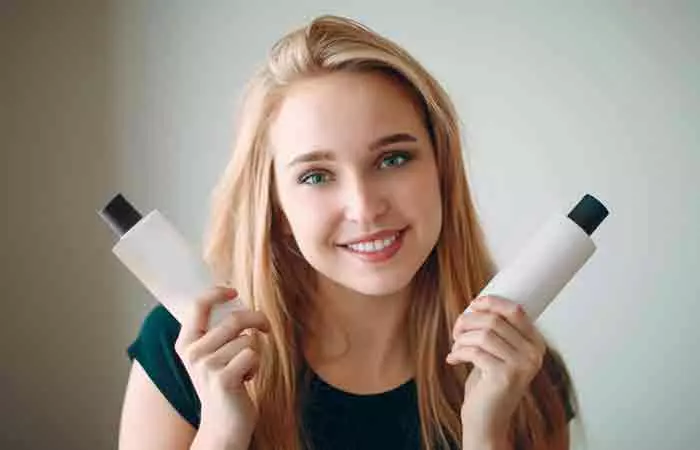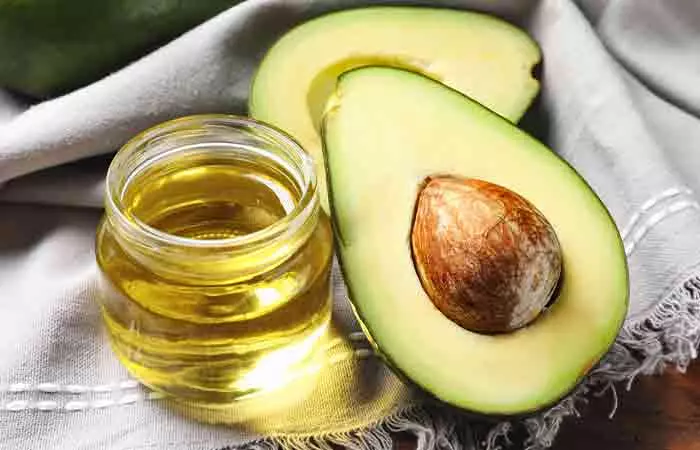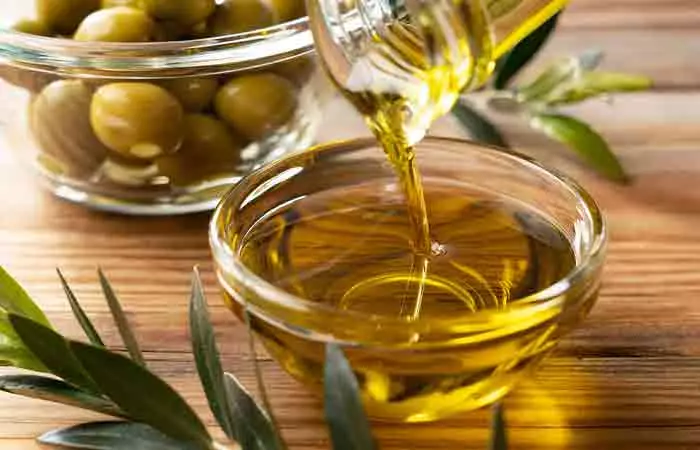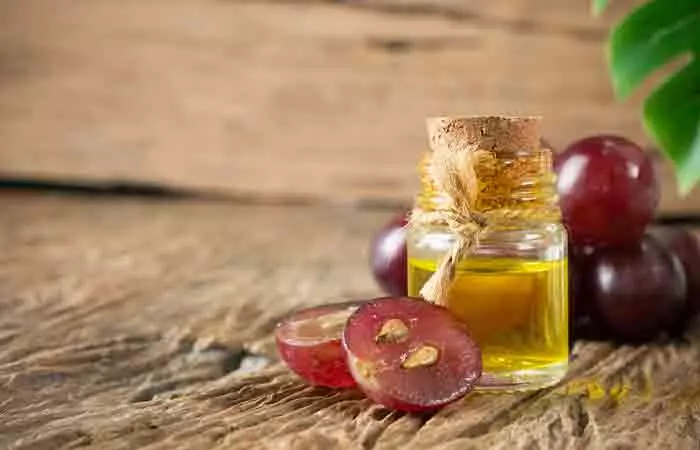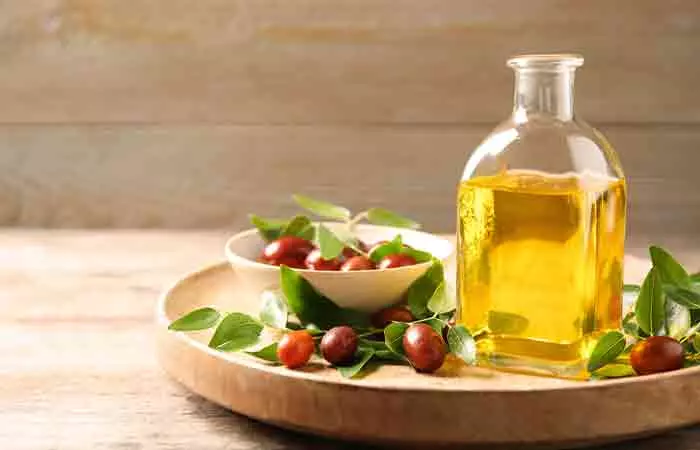Moisturizing Oils Vs. Sealing Oils – Which Oil Type Is Better?
The real answer to this question, as always, is that it depends. The impact of these oils can vary between individuals and depends on the balance of hair oiliness and dryness from scalp to scalp , and there are not a lot of ways to determine how they will impact you. But we can lay out the pros and cons for each and enable you to make a better choice. That is precisely what the following sections will attempt to do.
What Is A Moisturizing Oil?
Moisturizing oils are also known as penetrating oils as they penetrate the outer layers of the hair cuticle and access the inner layers of hair structure. They preserve moisture inside the hair shaft and hair follicles (1). This makes hair significantly more resilient and resistant to breakage. The following are the types of moisturizing oils that help with hair dryness.
Avocado Oil
Avocado oil contains several essential fatty acids, nutrients, including biotin, and vitamins A and E (2). It offers your scalp antioxidant hair protection and also may help fight dandruff. It helps improve hair length and reduce hair breakage and frizz.
Coconut Oil
Coconut oil reduces hair breakage by improving hair strength, thus helping in hair growth and is also a good natural scalp (skin) moisturizer (3). Audrey, a YouTuber, applied coconut oil to her hair and kept it overnight. Talking about the difference she saw, after rinsing off the oil with shampoo, she said, “My hair looks a lot more shiny and less frizzy after using coconut oil compared to when I don’t use it (i).” She also said that her split ends looked less apparent than it would if she hadn’t used the oil.
Olive Oil
Olive oil not only provides moisture for your hair but also boosts hair shine. Additionally, it reduces hair breakage and can even help reduce hair split ends at hair tips and hair flyaways (4). It also could treat hair frizz, hair brittleness, and hair elasticity and make detangling easy. How To Use? The best ways to apply moisturizing oils are as follows:
Pre-Poo
Pre-poo refers to the activity of applying oil before you shampoo. This has a number of advantages. It adds a significant amount of extra hydration to your hair. It also acts as an emollient and softens your hair, boosts hair shine and adds hair volume.
Oil Rinse
This method refers to washing your hair with a mixture of oil and conditioner. Apply the mixture to your hair and scalp and retain it for a while. Wash as usual.
What Is A Sealing Oil?
While moisturizing oils penetrate the hair layers, sealing oils stay on top of the hair and seal inherent hair moisture. They can also be used in hair styling and hair maintenance. The following are the types of sealing oils.
Grapeseed Oil
People with thin hair generally prefer grapeseed oil. The oil has low viscosity (5). It is light and does not weigh your hair down.
Jamaican Black Castor Oil
Jamaican black castor oil is an excellent option for people with good hair thickness and hair density or curly hair. It has a high hair porosity and consistency that coats hair significantly and helps in deeper hair penetration and hair absorption.
Jojoba Oil
The benefits of jojoba oil for hair are manifold. Jojoba oil helps clean the scalp and its anti-inflammatory properties may help prevent any scalp issues (4). Its consistency is similar to that of natural oils. How To Use? The best way to apply sealing oils is as follows:
After Your Leave-In Conditioner
You may apply a sealing oil after and over your leave-in conditioner. The oil sits on top of the hair strands and adds shine. It also eliminates the necessity for additional hair products. These oils also help remove hair frizz and hair static. Is argan oil a sealing oil or moisturizing oil? Argan oil is both a sealing and moisturizing oil. It implies that it can seal the strand on the surface while also penetrating the hair and helps in scalp care and hair care. Can you mix moisturizing and sealing oils? Yes, if you have a coarse hair texture, it is more prone to dry out quicker. Hence, you can apply a combination of moisturizing and sealing oils in addition to your other products to help preserve moisture. Is shea butter a moisturizer or sealant? Shea butter is considered a sealant because it is made mainly of oils. These oils don’t add water or additional moisture. Instead, they keep the moisture in your skin. Hence, shea butter works best as a sealant when applied after a water-based product. It can be applied to both skin and hair. Is tea tree oil a moisturizer or sealant? Tea tree oil is a natural moisturizer and conditioner. It removes any substances that make the scalp dry up and flake. Is apricot oil a moisturizer or sealant? Apricot oil can be used as a sealant as its light nature is excellent for sealing in moisture. Learn the science behind moisturizing oils and sealing oils and how to use them for the best results. Watch the video to understand which one is the best for your skin type.
